In a statement issued on the eve of the 56th commemoration of the assassination of the independence hero, Bujumbura government openly accuses Belgium of having plotted his assassination. The statement risks exacerbating the already existing tensions.
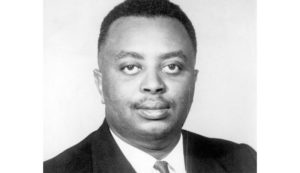 Burundi government openly accuses Belgium of having a great responsibility in the assassination of Prince Louis Rwagasore and his family. In addition, it regrets that the former colonial power has not been held accountable to date. Bujumbura even asserts that Belgium is behind the various political and ethnic crises that have plunged Burundians into mourning, and this following the old colonial policy of divide and rule.
Burundi government openly accuses Belgium of having a great responsibility in the assassination of Prince Louis Rwagasore and his family. In addition, it regrets that the former colonial power has not been held accountable to date. Bujumbura even asserts that Belgium is behind the various political and ethnic crises that have plunged Burundians into mourning, and this following the old colonial policy of divide and rule.
Although its responsibility has not yet been clearly proven in the assassination of Rwagasore, the thesis of a conspiracy organized by Belgium remains alive in the public opinion. Guy Poppe, author of Rwagasore le Lumumba Burundais, explains how Belgium tried to manipulate the lawsuit. Indeed, the Ministry of Foreign Affairs had contemplated steps to protect those who were responsible for his assassination in Burundi at the time of the crime.
For his part, Prince Charles Baranyanka, brother of Ntidendereza and Birori (sentenced to death for the assassination of Rwagasore) in his book “le Burundi, Face à la Croix et la Bannière, imputes in a “disguised” but “indisputable” way, the responsibility of the attack to the colonial power of the time. He however does not point the finger at Belgium as such.
As for Kageorgis, the prince’s assassin, in the letter that he sent to his parents, he said that he did not do the act alone. “I solemnly proclaim that I am not the only culprit. This crime was perpetrated by the colonial administration,” he writes. In the same correspondence, he underlined that his execution will be the responsibility for Belgium. This “assassin” accuses the former colonial power of willingly “hushing up” its guilt.
Why now?
Ludo de Witte, a Belgian historian, says that the Burundian government has “protected” the Belgians. Relying on the British archives, he said that Belgium did not want the trial to be held again so that its role should not be made public.
Belgium even threatened to suspend its aid if Bujumbura did not accept it. The Belgian historian indicates that according to the British ambassador of the time, a “deal” would have been made. The Burundian opinion could not support a Belgian verdict as some leaders of the colonial power were involved in the assassination.
The Prime Minister André Muhirwa, could not do without the help of the former colonial power and therefore chose the path of compromise: The government executed the killers of Rwagasore and Brussels remained indifferent and in return, no Belgians were targeted in the investigations.
Some people question the motive behind Bujumbura’s statements. Is it linked to the increasingly tense relations between the two countries? A more plausible track in view of the situation but that does not explain everything. According to an informed observer, that Burundi revives the debate is more than normal. He believes that the Belgium involvement in the assassination of Rwagasore is not insignificant.
He recalls that Belgium has recognized its role in the assassination of Lumumba. The same as France in the crimes committed during the war in Algeria. Nothing prevents Belgium from doing the same thing for Burundi. “It should also recognize its responsibility especially as the current Belgian leaders have not experienced colonization and bear no individual responsibility in what happened in the 1960s,” he concludes.
Reactions
Olivier Nkurunziza: “Demanding justice has nothing to do with the relations between the two nations”
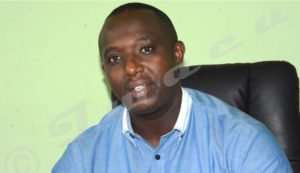 For the Secretary General of UPRONA party, Rwagasore did not die a natural death. He was assassinated. Mr. Nkurunziza deplores the fact that only those who killed him were sentenced but those who ordered his assassination were spared.
For the Secretary General of UPRONA party, Rwagasore did not die a natural death. He was assassinated. Mr. Nkurunziza deplores the fact that only those who killed him were sentenced but those who ordered his assassination were spared.
“We want Belgium to apologize for its role in the assassination of the hero of the independence and pay reparations for the harm done to Burundian people.”
To the question of whether or not these accusations would undermine the already tense relations between the two countries, he says:” Demanding justice has nothing to do with the relations between the two nations. We want justice to be done and the truth to be known. ”
Tatien Sibomana: ” Tensions between the two countries should first be eased”
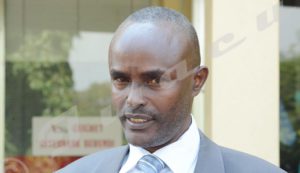 For this political actor, questioning the involvement of Belgium in the assassination of Prince Rwagasore is not a bad thing. He believes that Burundians need to know who planned and perpetrated this crime. “This demand should be motivated by political and historical reasons rather than a climate of mistrust and tensions between our the countries”. Mr. Sibomana says such issues are dealt with diplomatically. He advised the Burundian authorities to restore good relations with Belgium so that this issue could be studied jointly by the two countries.
For this political actor, questioning the involvement of Belgium in the assassination of Prince Rwagasore is not a bad thing. He believes that Burundians need to know who planned and perpetrated this crime. “This demand should be motivated by political and historical reasons rather than a climate of mistrust and tensions between our the countries”. Mr. Sibomana says such issues are dealt with diplomatically. He advised the Burundian authorities to restore good relations with Belgium so that this issue could be studied jointly by the two countries.
Phenias Nigaba: “Need for a commission before drawing conclusions”
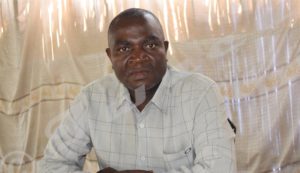 For FRODEBU party spokesman, the light must be shed on this matter. He demands that a commission be set up to specify the responsibilities of each and everyone. “Accusations without evidence are likely to be qualified as groundless.” For the moment, Mr. Nigaba wonders about the importance of a commission that will be set up when the government has already stated that Belgium is guilty. He finds that the work of a commission is first necessary before jumping to conclusions.
For FRODEBU party spokesman, the light must be shed on this matter. He demands that a commission be set up to specify the responsibilities of each and everyone. “Accusations without evidence are likely to be qualified as groundless.” For the moment, Mr. Nigaba wonders about the importance of a commission that will be set up when the government has already stated that Belgium is guilty. He finds that the work of a commission is first necessary before jumping to conclusions.
Kefa Nibizi: “Assassins were supported by Belgium”
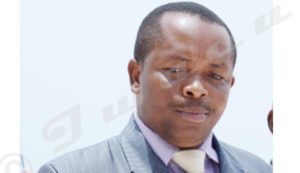 According to the chairman of Sahwanya FRODEBU Iragi rya Ndadaye party, the accusations of the Burundian government are well founded. “The people who were involved in the assassination of Rwagasore are known and supported by Belgium”. He refers to the fact that the majority of the assassins belong to the Christian Democratic Party. The latter, supported by the colonial power, opposed immediate independence. Kefa Nibizi calls on both governments to engage in dialogue to establish accountability. He says that nearly six decades after the tragedy, there is not much to hide.
According to the chairman of Sahwanya FRODEBU Iragi rya Ndadaye party, the accusations of the Burundian government are well founded. “The people who were involved in the assassination of Rwagasore are known and supported by Belgium”. He refers to the fact that the majority of the assassins belong to the Christian Democratic Party. The latter, supported by the colonial power, opposed immediate independence. Kefa Nibizi calls on both governments to engage in dialogue to establish accountability. He says that nearly six decades after the tragedy, there is not much to hide.
Written by Arnaud Igor Giriteka
And translatted by Pierre Emmanuel Ngendakumana

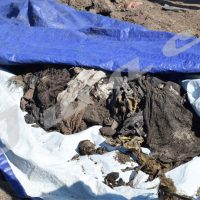

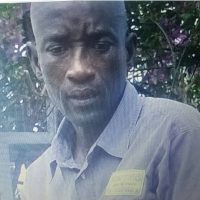
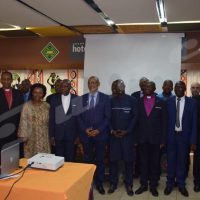
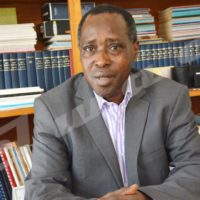













 IWACU Open Data
IWACU Open Data

